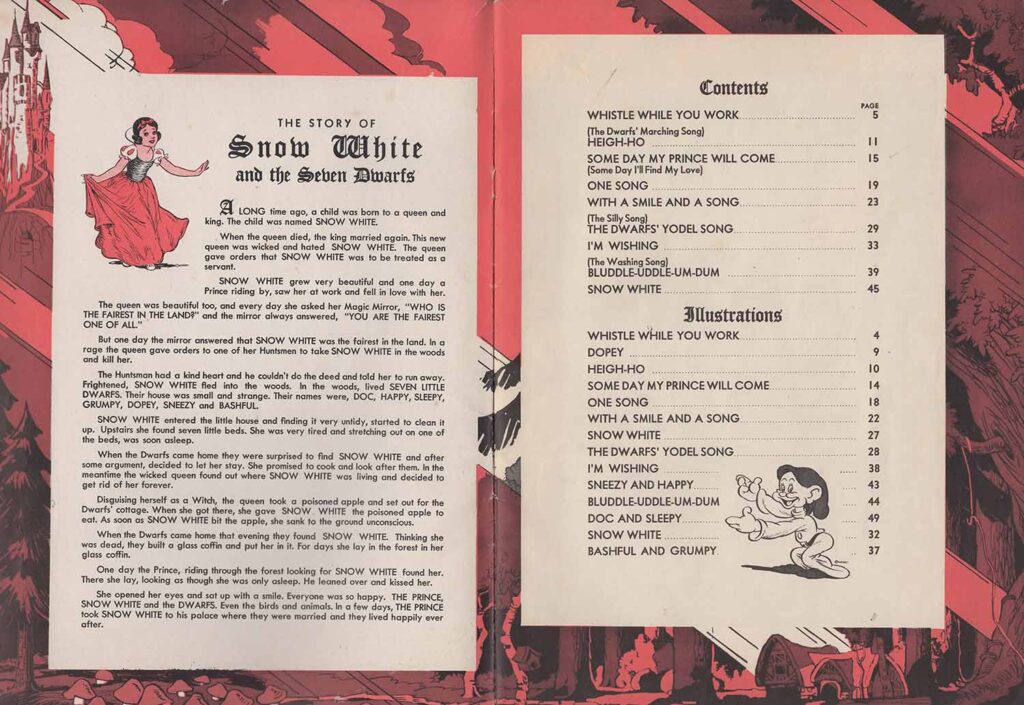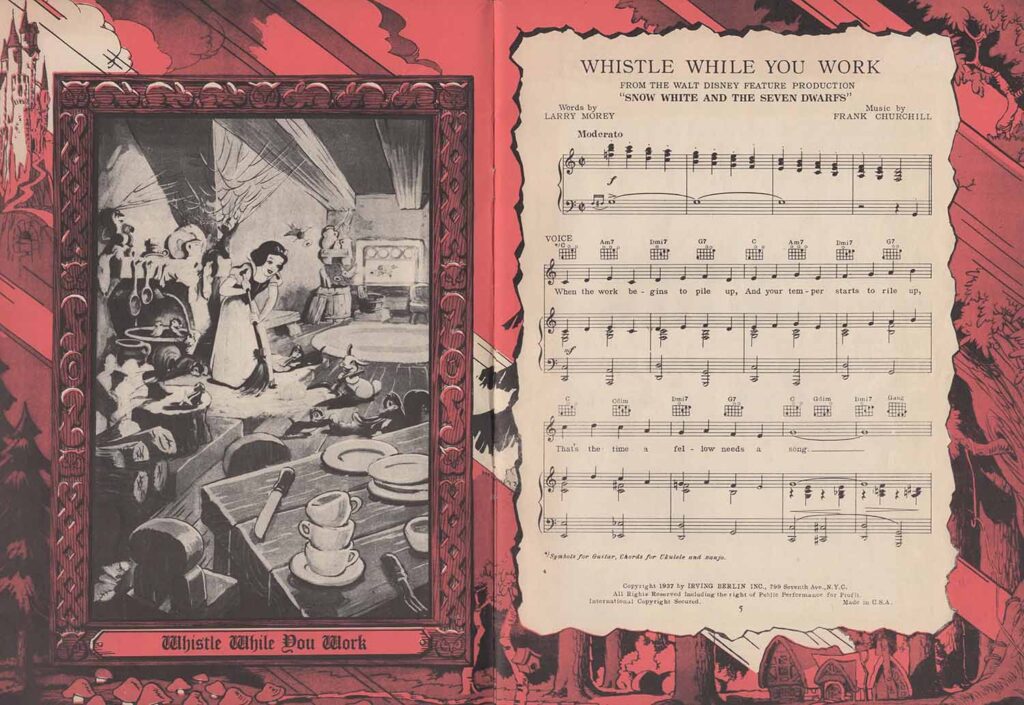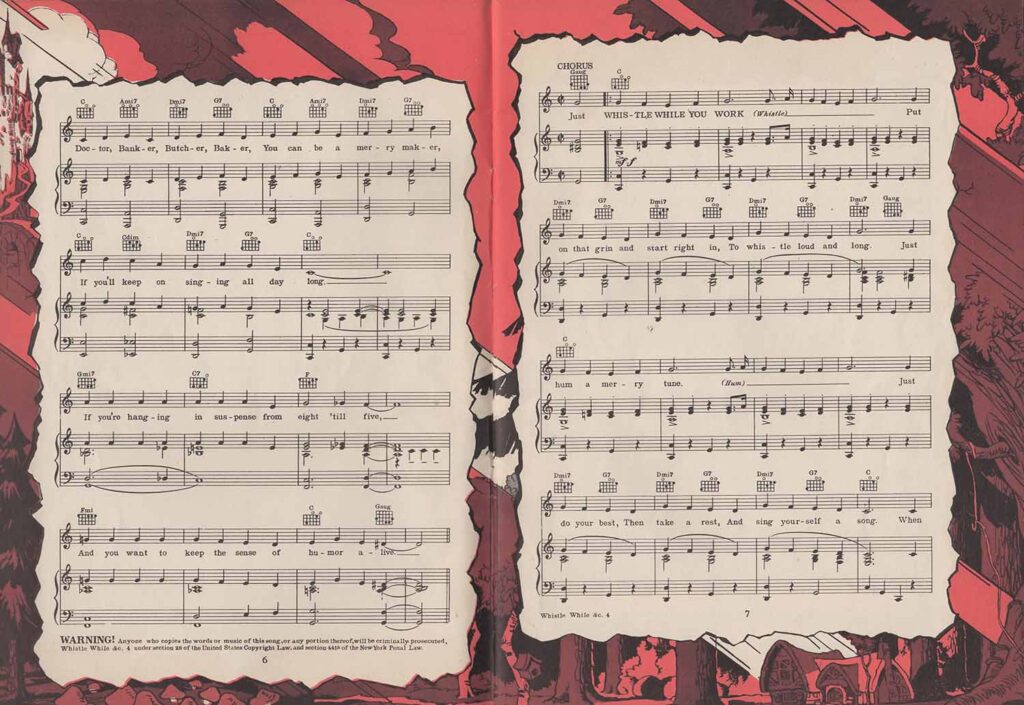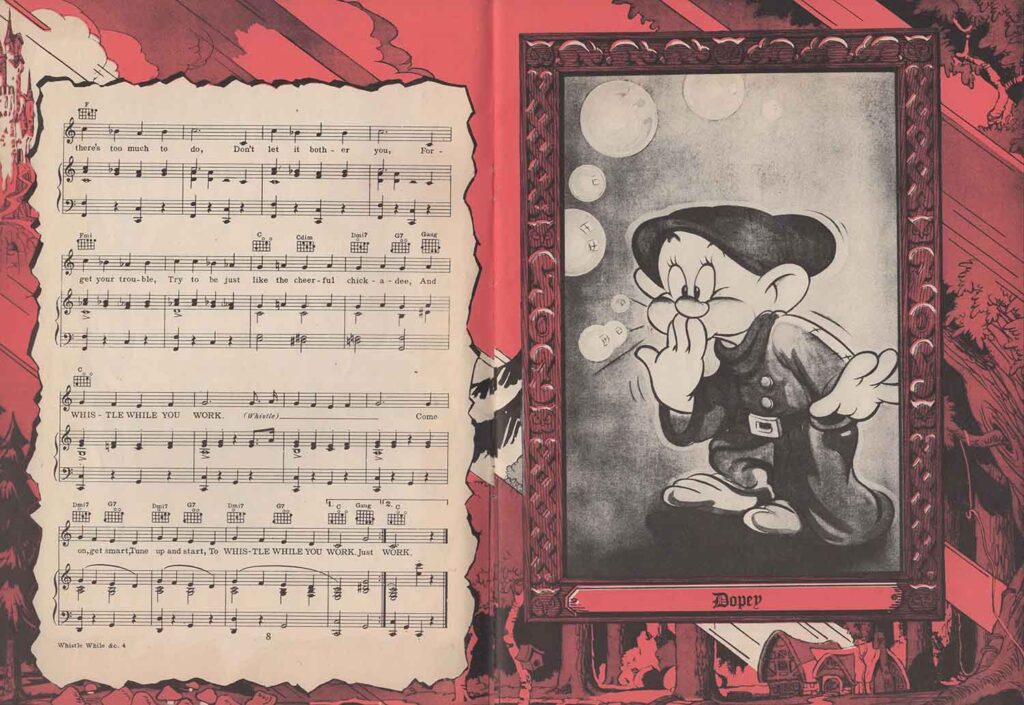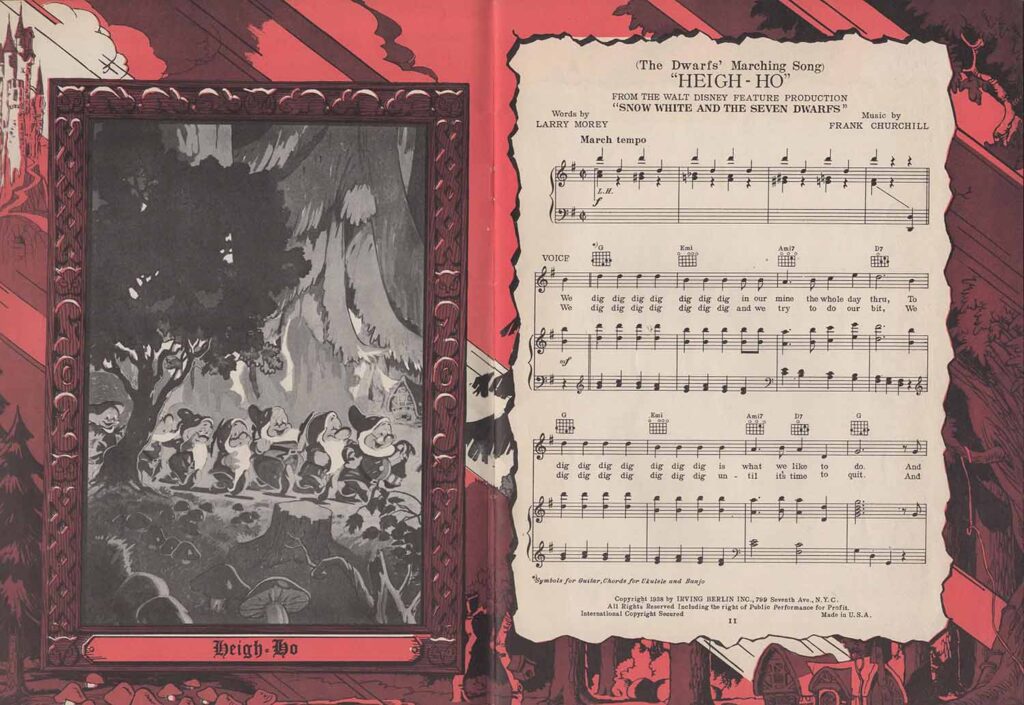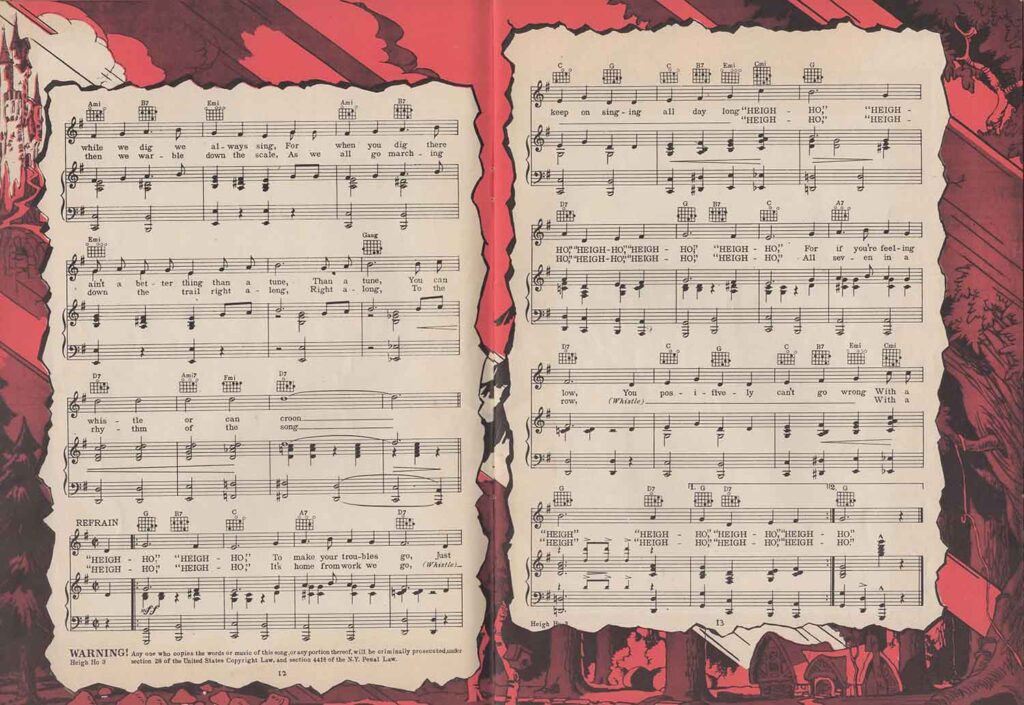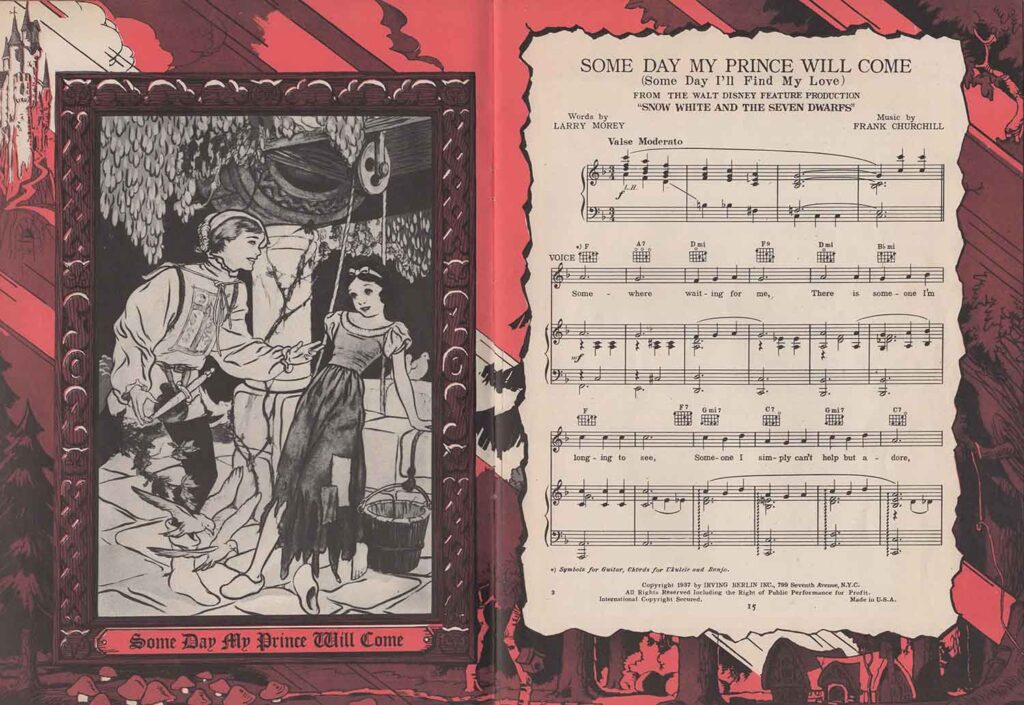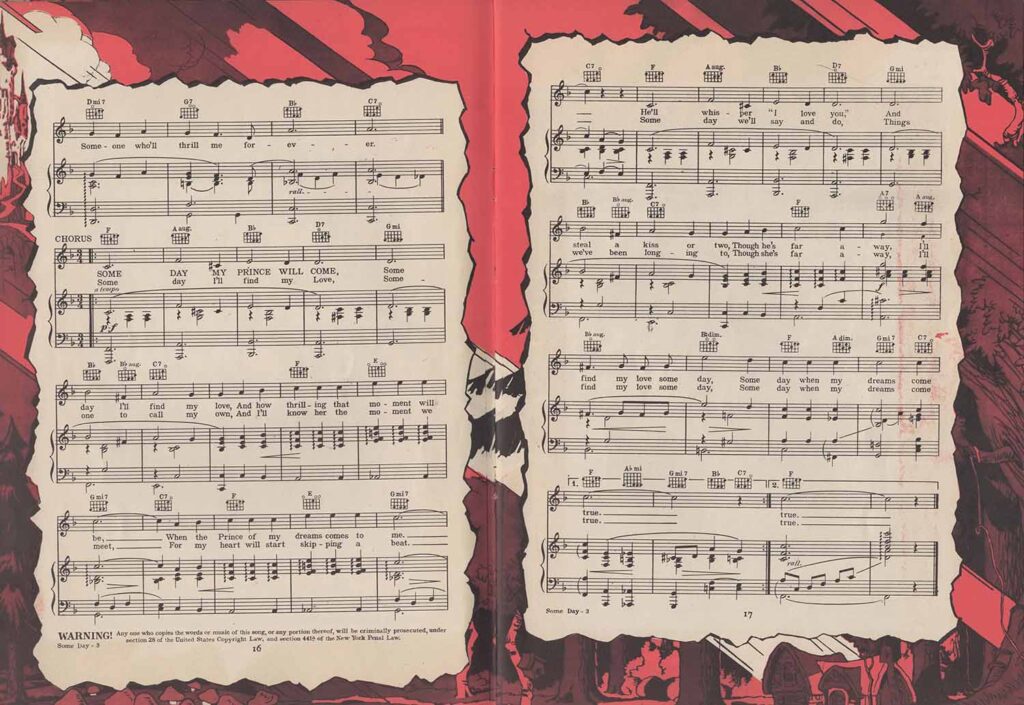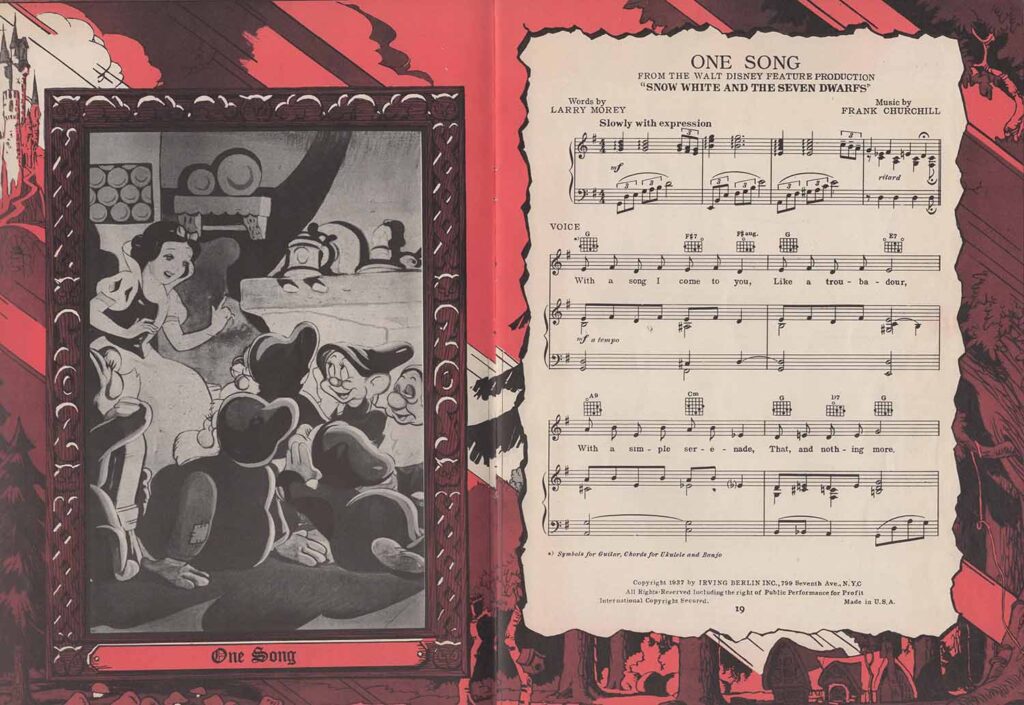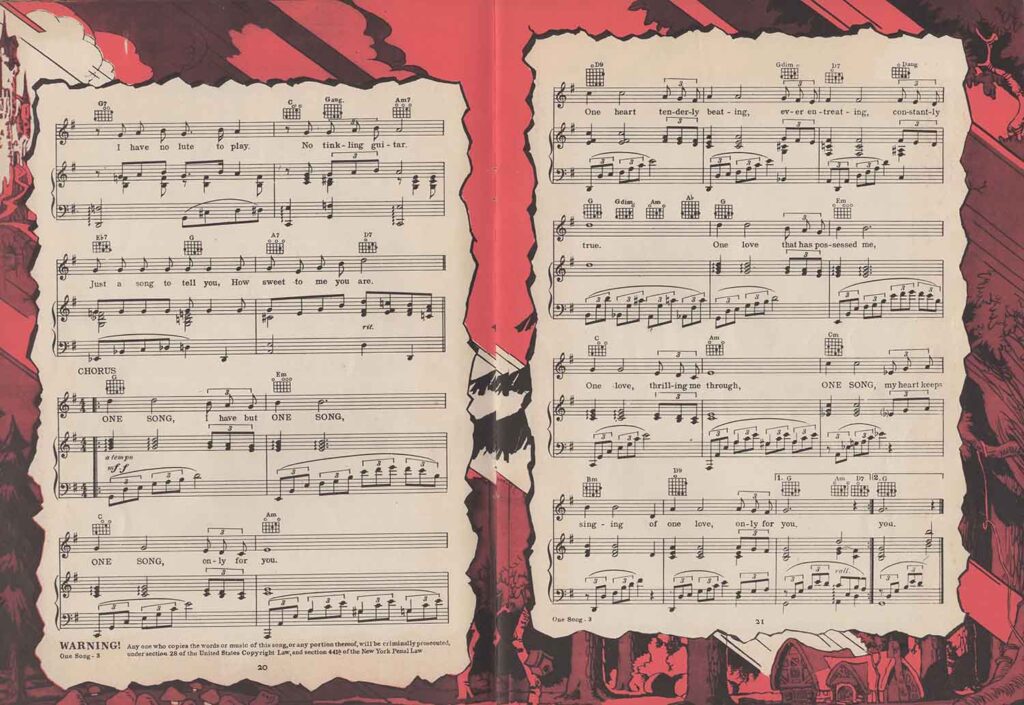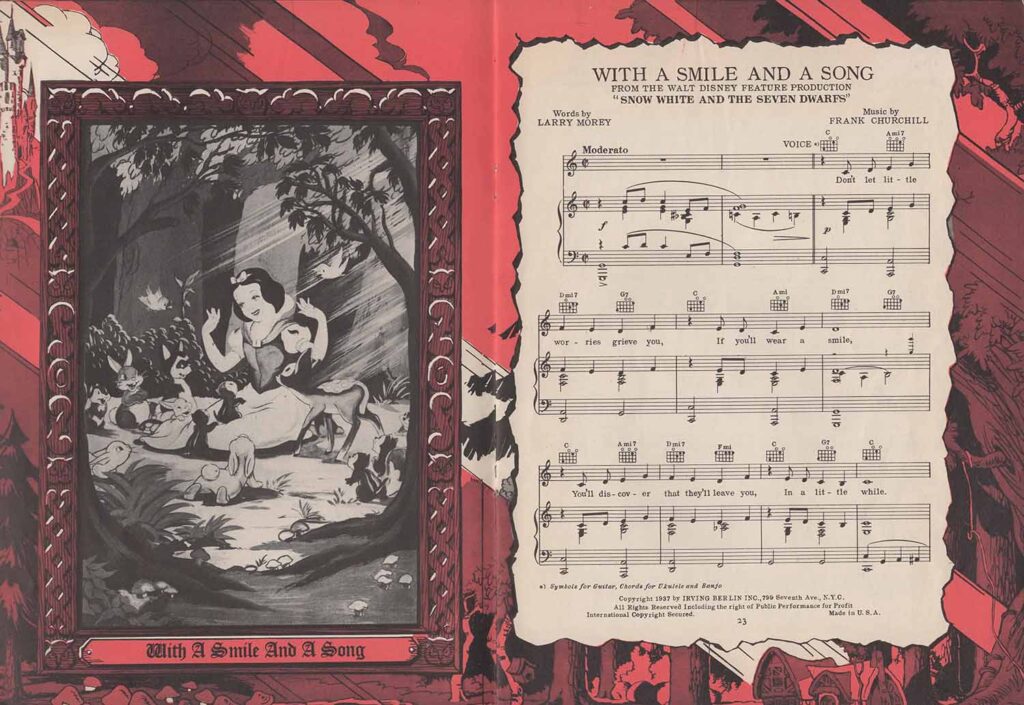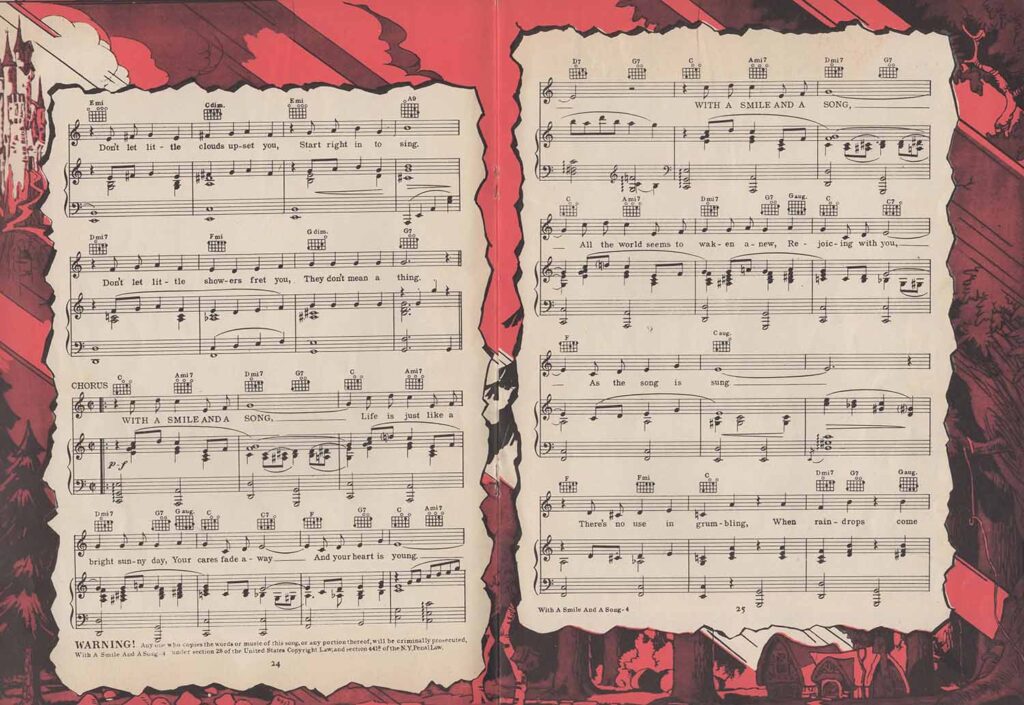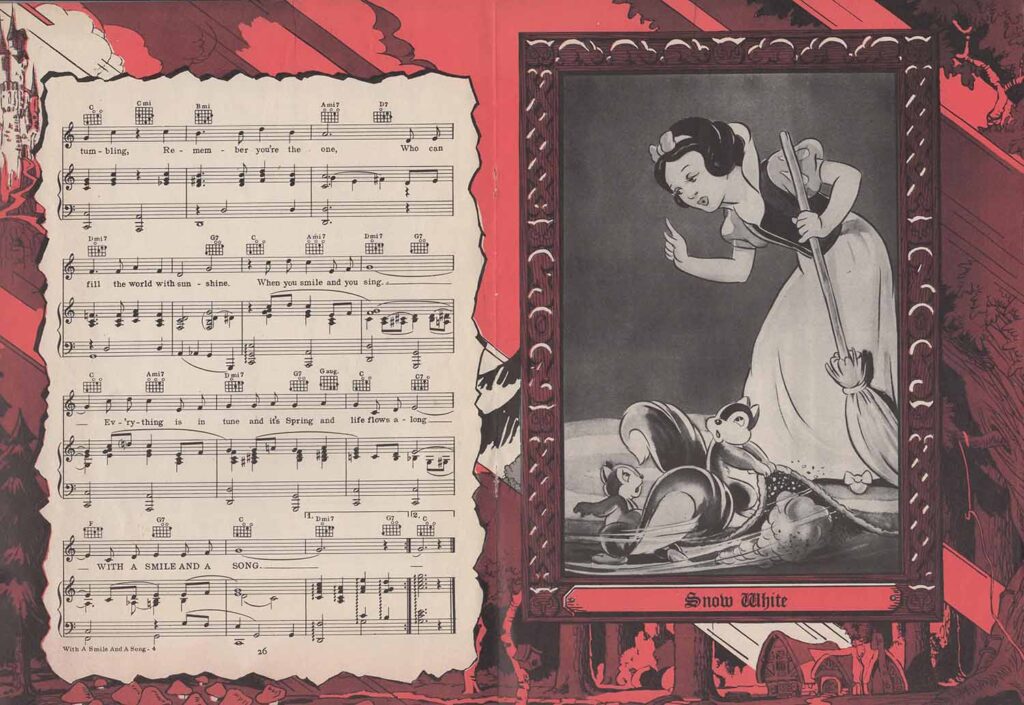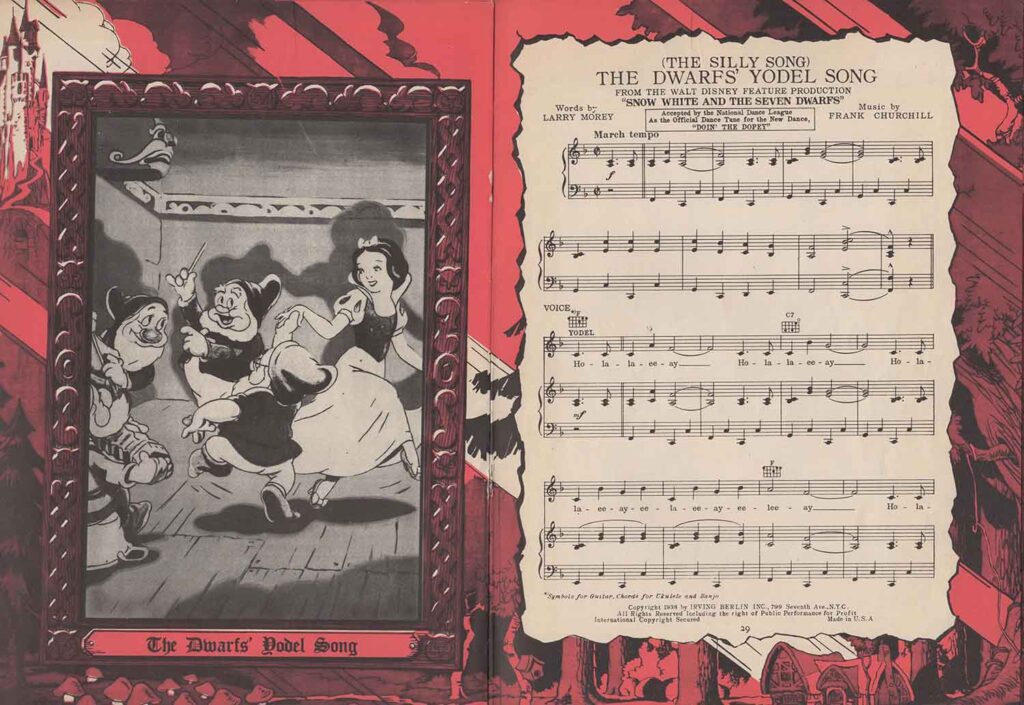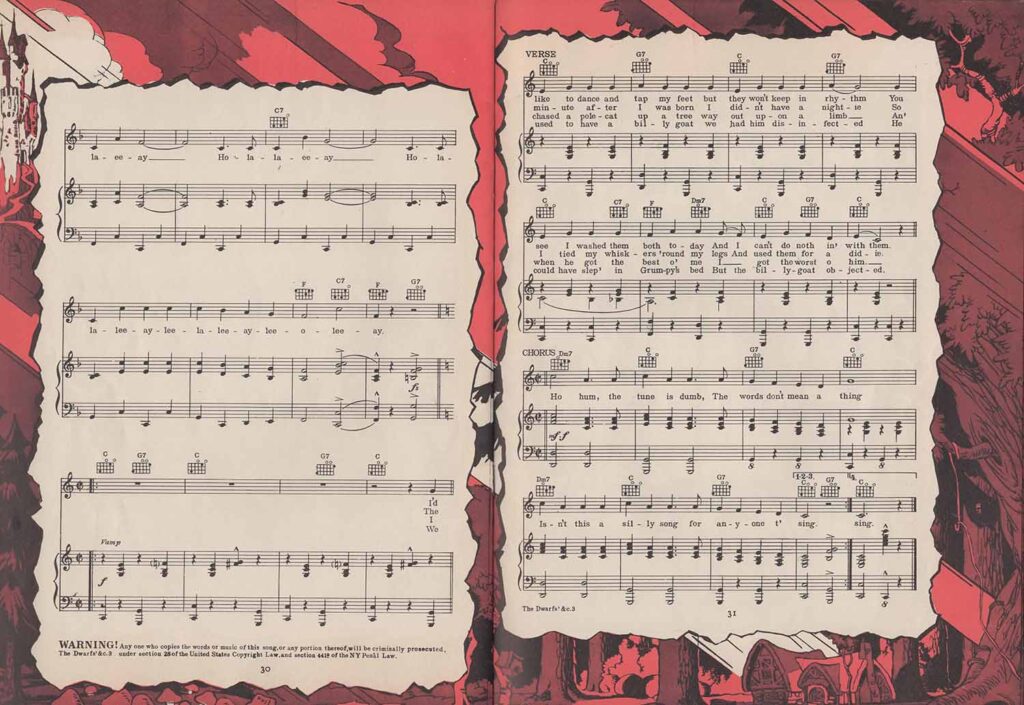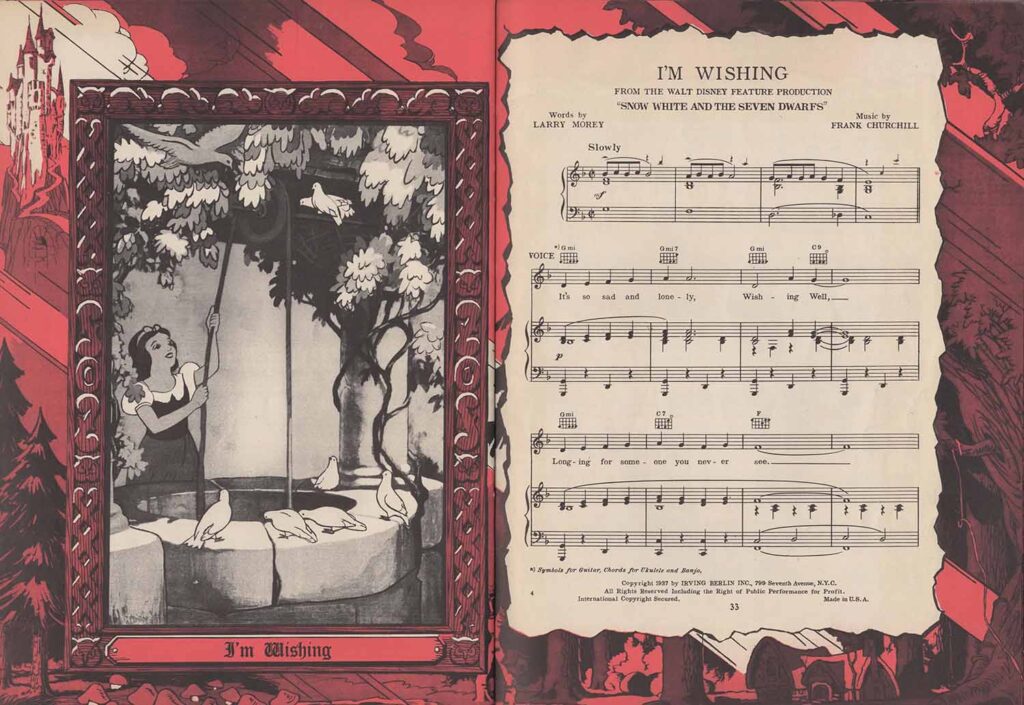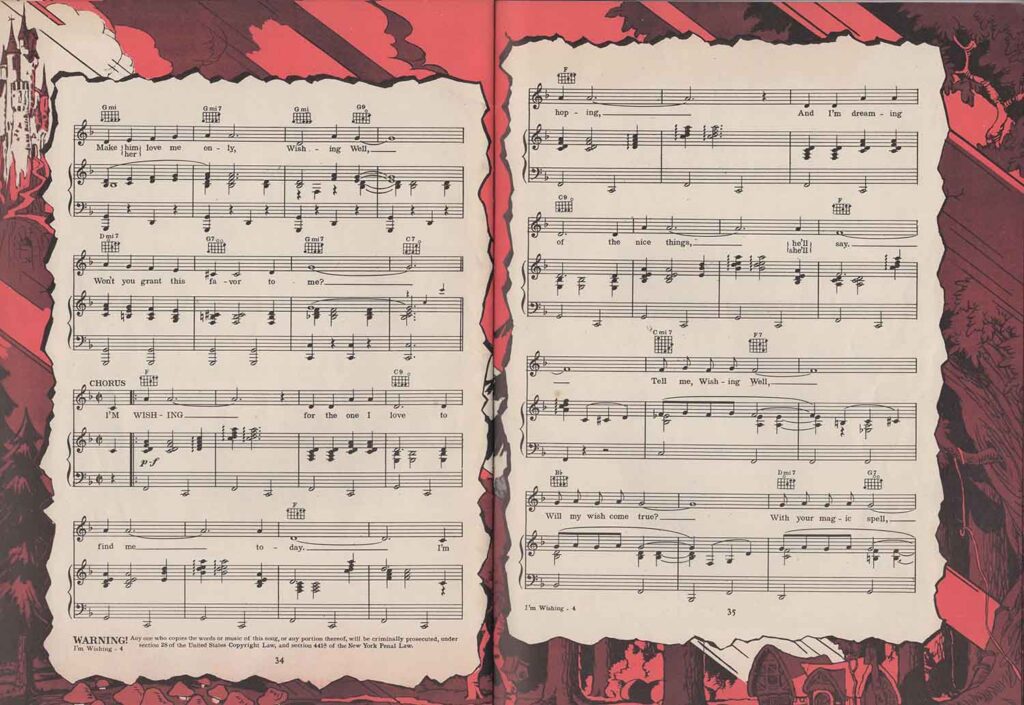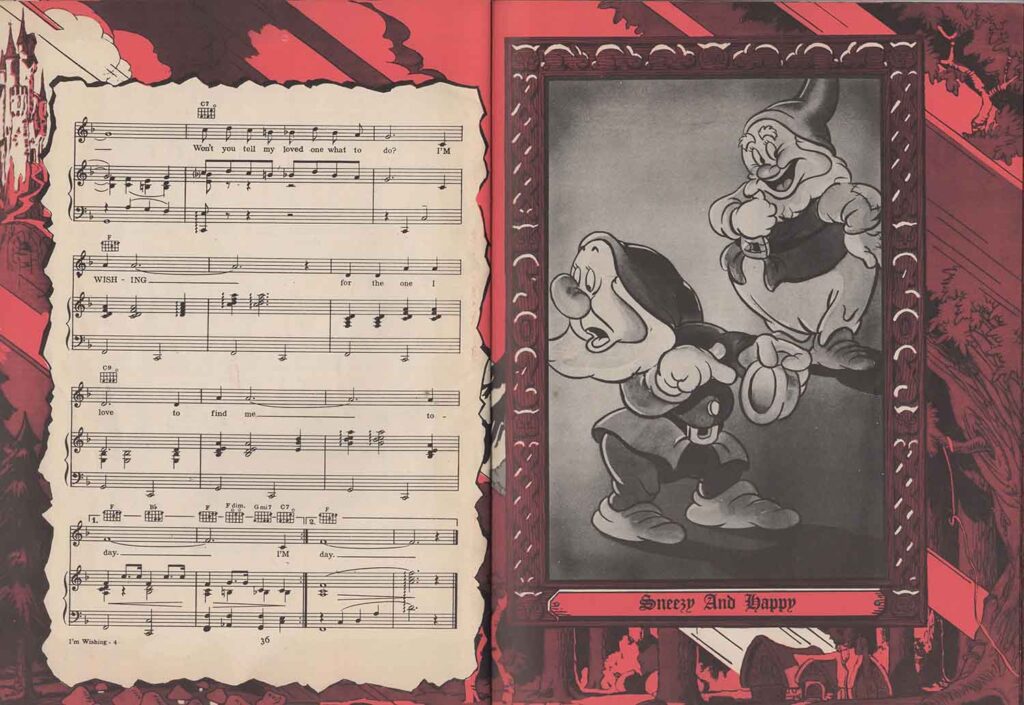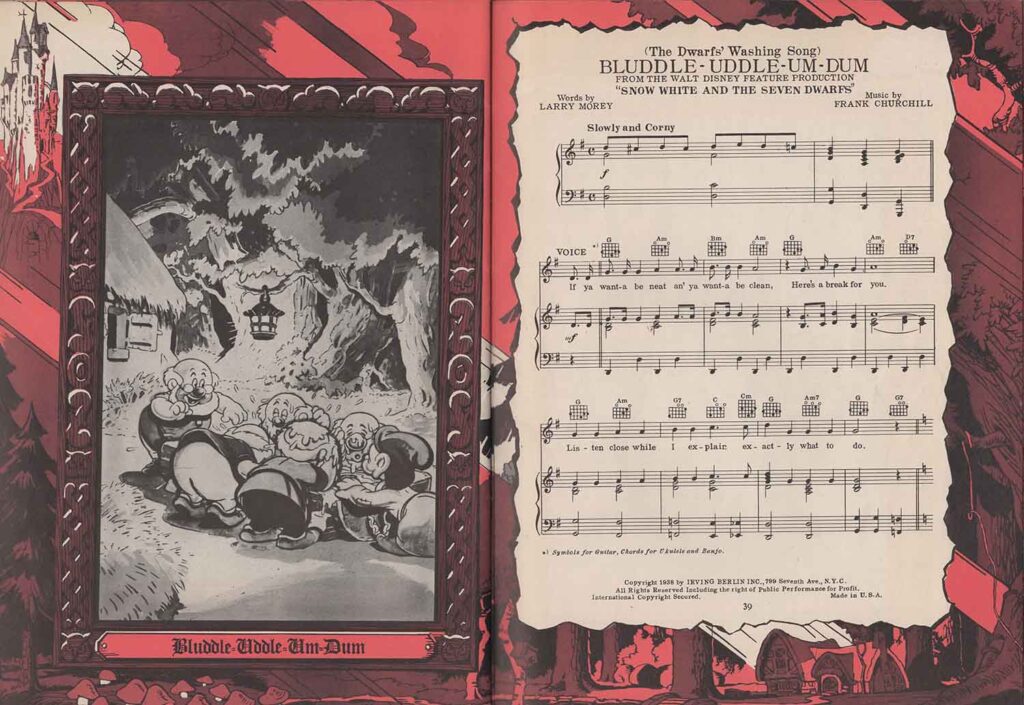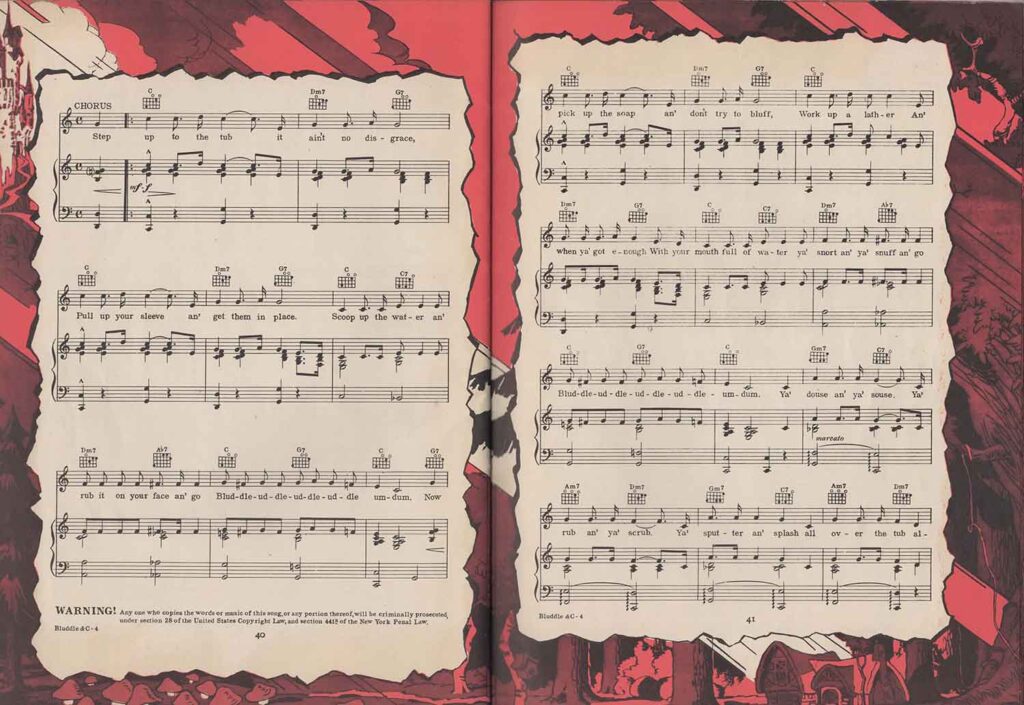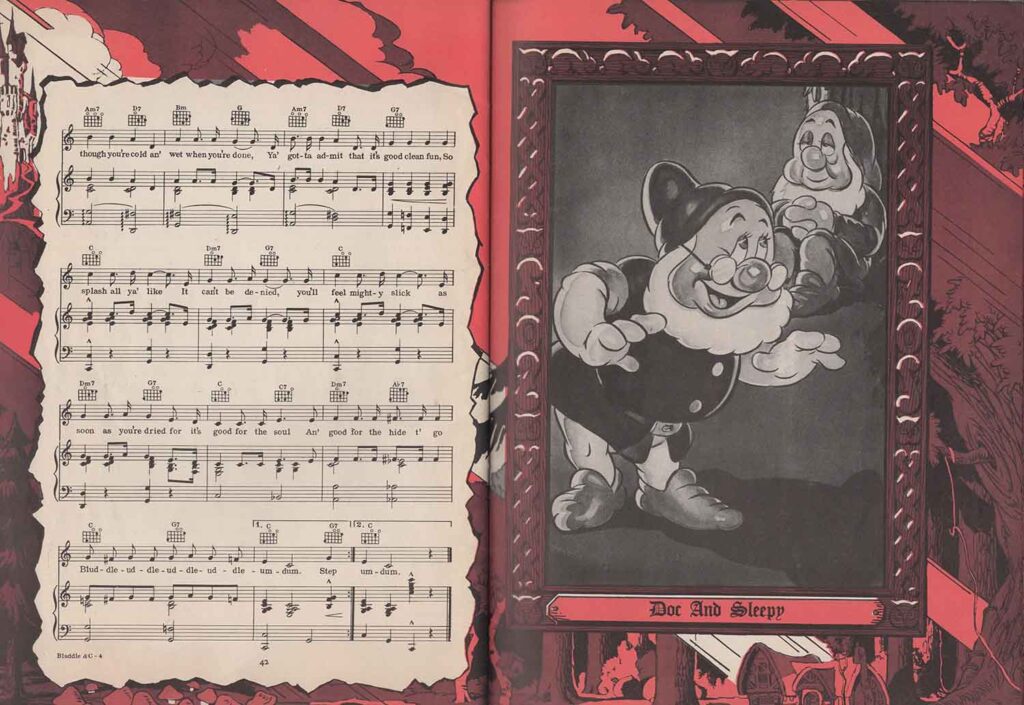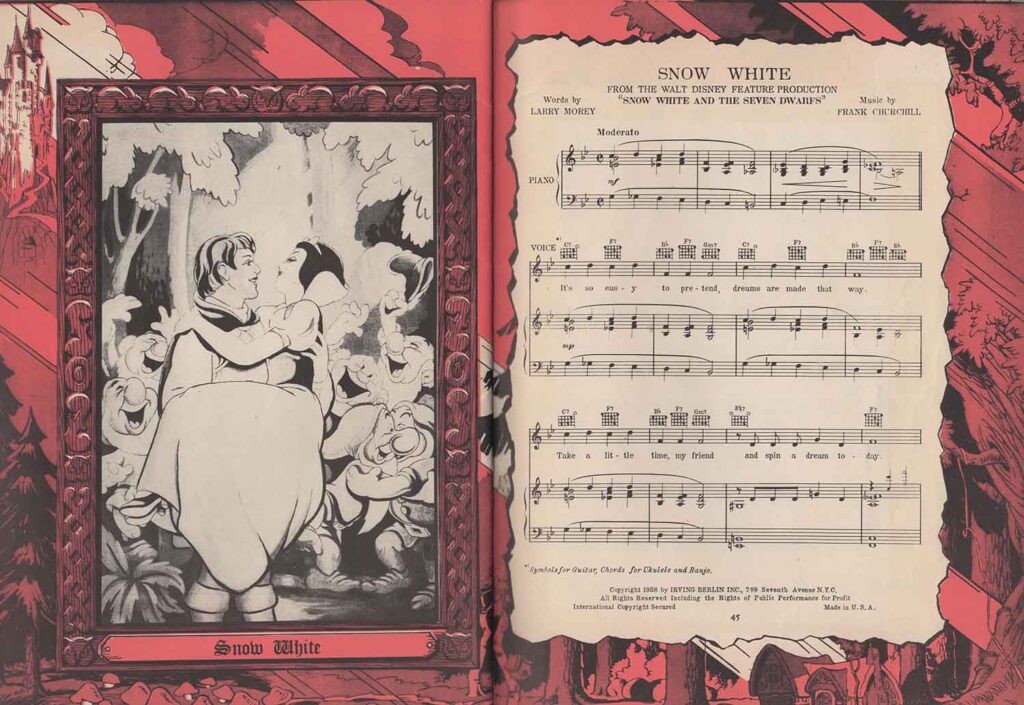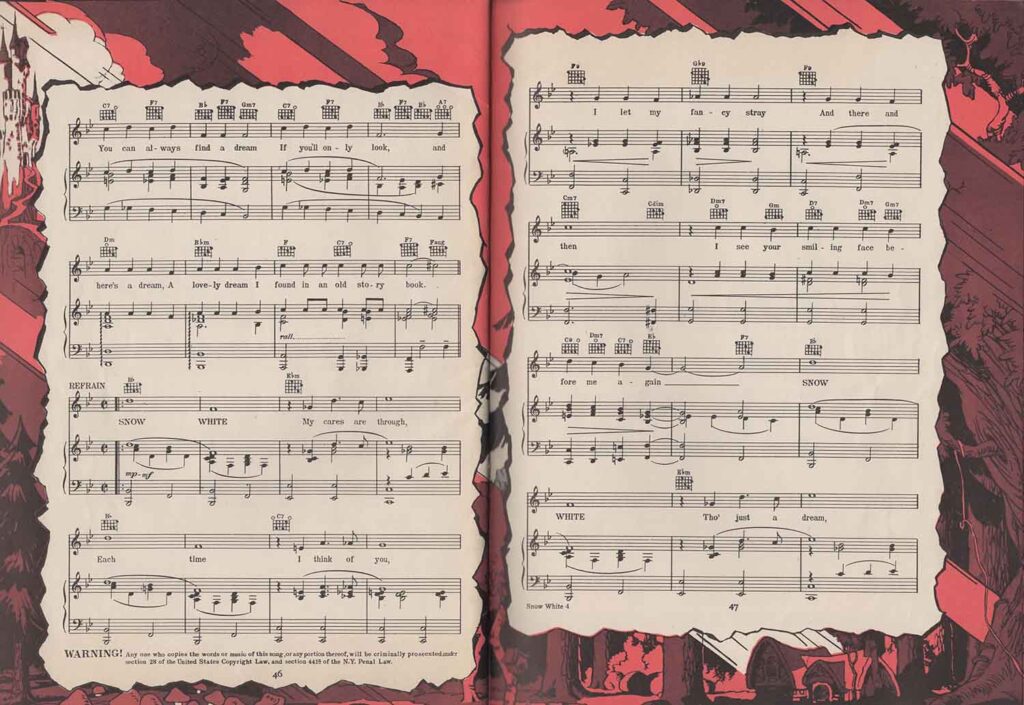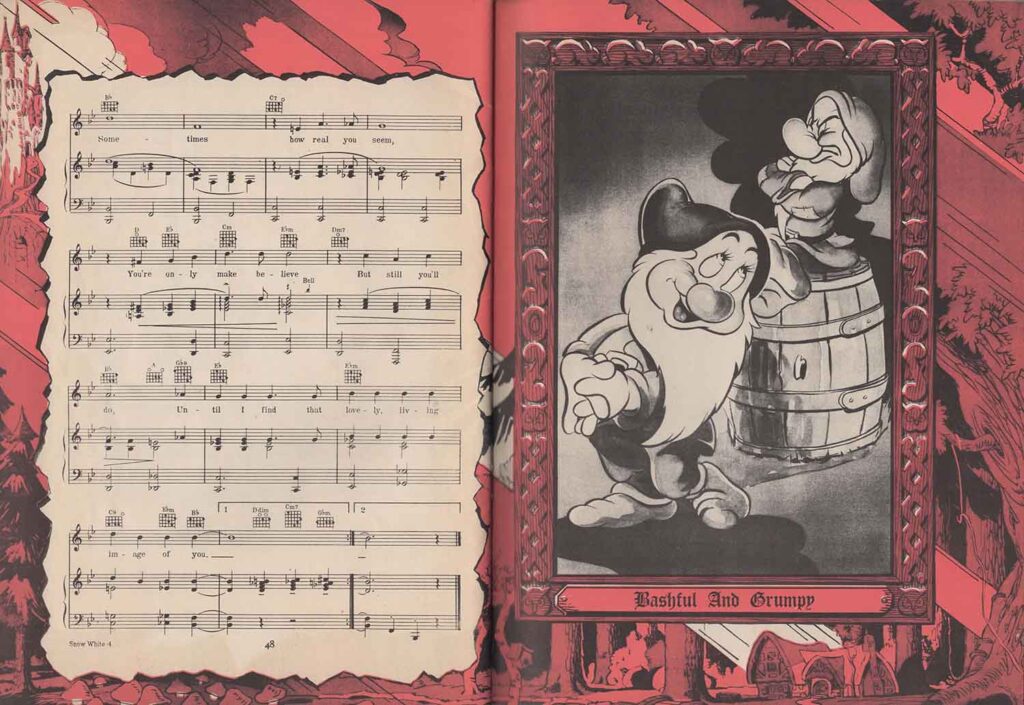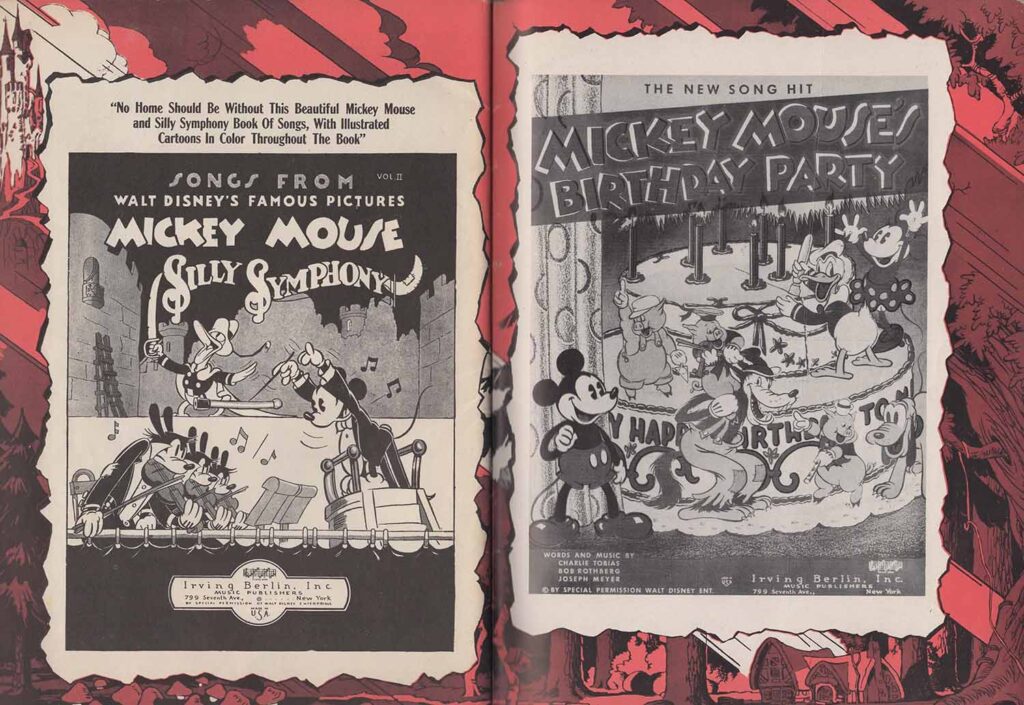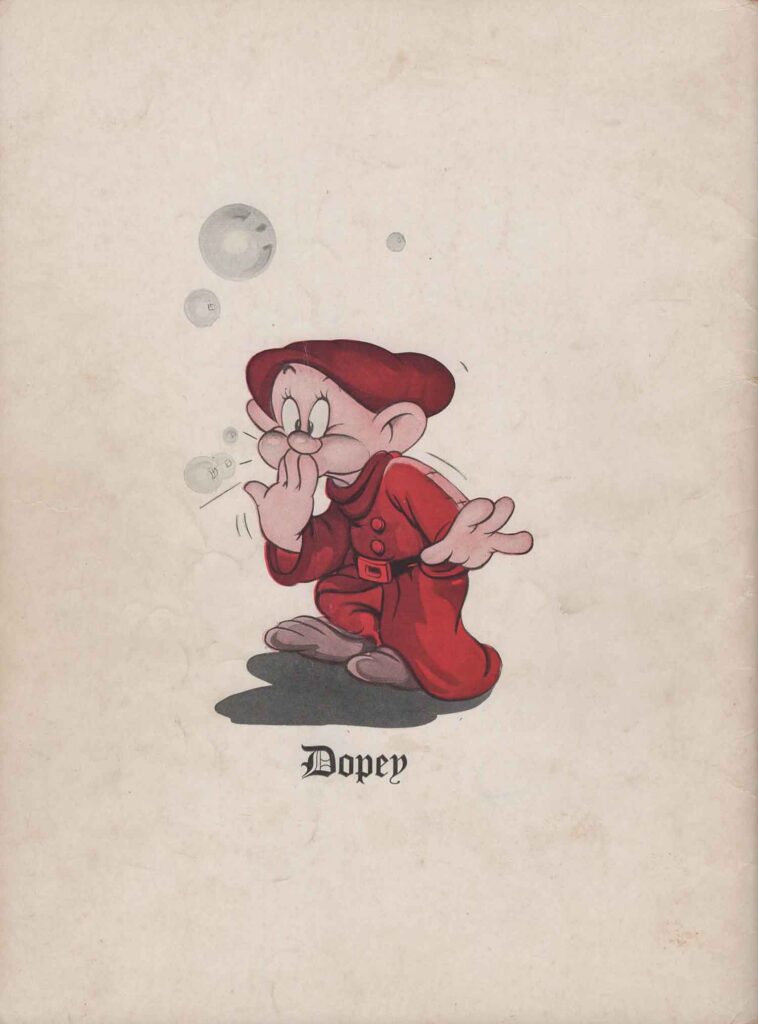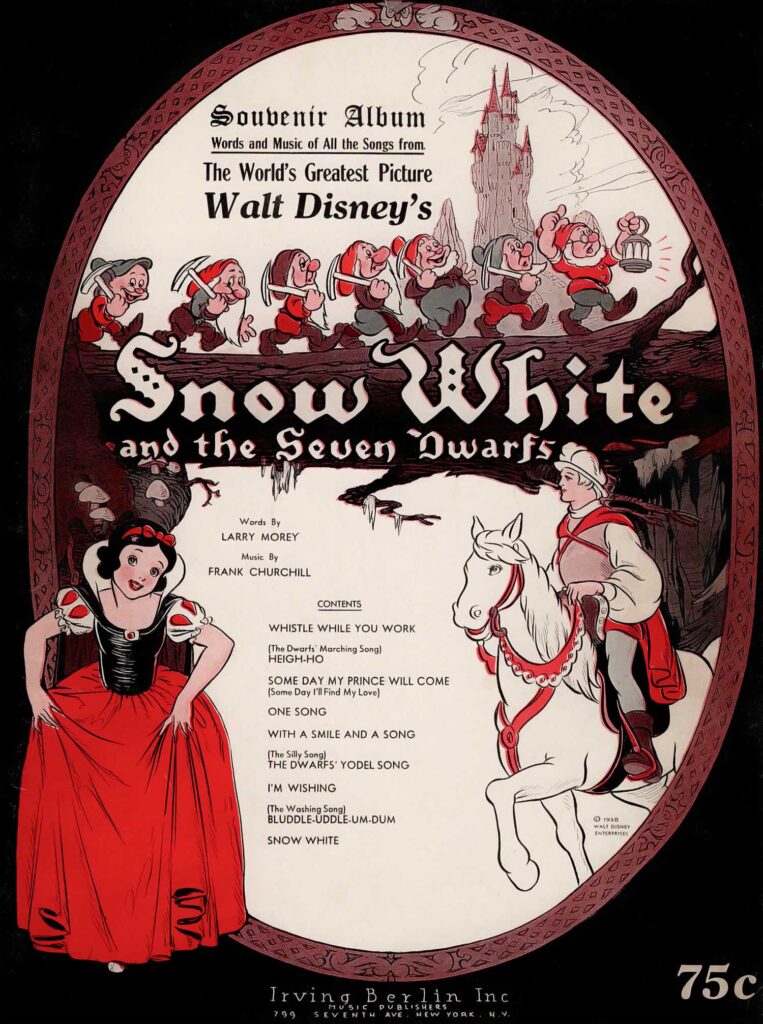
This “souvenir album” sold for $0.75, as the cover reminds us, is the collection of sheet music for Walt Disney’s film songs published in the United States. This is the original album published by Irving Berlin before the company changed its name in 1944, after which the album was reissued with subtle changes.
The album
The American rights holders are mentioned on the cover and on several pages: Copyright 1937 Irving Berlin Inc. 799 Seventh Avenue, N.Y.C., to whom Walt Disney assigned the rights to exploit the film’s music. This 52-page compendium is priced at 0.75 and each page features a frame with illustrations in red. There is a pagination error in the table of contents, which refers not only to the songs but also to the illustrations. However, pages 32 and 37 are inexplicably placed at the end of the list, shifting all subsequent illustration pages. These illustrations are in black and white and appear to be drawings by Tom Wood.
Just before the table of contents, we are offered a one-page summary of the film’s story. The last page and the back cover promote the scores for Silly Symphonies and Mickey’s Birthday.
The Songs
The arrangements published here are for piano and voice. They include 8 songs from the film:
- Whistle While You Work
- Heigh-Ho
- Some Day My Prince Will Come
- One Song
- With a Smile and a Song
- The Dwarf’s Yodel Song
- I’m Wishing
- Bluddle-Uddle-Um-Dum
- Snow White
Note the inclusion of the song “Dig Dig Dig” in the score for “Heigh-Ho”, but the addition of the song “Snow White”, which is not heard in the film. It’s easy to see from the scores that none of the songs here are exactly the same as those heard in the film. In fact, the lyrics are either completely different (“Whistle While You Work”), or new introductions or elements not found in the film have been added, all in order to offer versions more suitable for use on record, or in dance halls.
In some cases, these are clearly lyrics intended to be sung outside the context of the film, which is famous for advancing its story through song sequences, making the lyrics sometimes too tied to the script to make good variety songs. The new lyrics, freed from this contextual need, deal more generally with love and work without precision: in “Whistle While You Work”, no more mention of brooms, making the song accessible to all types of workers. These lyrics would be used in most recordings of these songs until the end of the 20th century.
Under the title “The Silly Song”, an insert informs us that this song has been “accepted by the National Dance League as the official dance tune for the new dance ‘Doin’ the Dopey’”.

